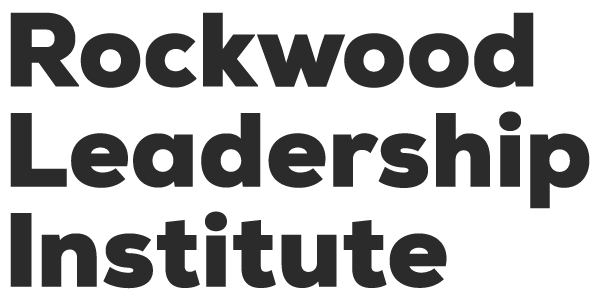
I was feeling nervous as I made my way up to the third floor of the Chicago Hilton.
It was my very first time at the Creating Change Conference, and I was on my way to “Talking Across Movements: LGBTQ, Economic Justice, Environmental, and Immigrant Rights Leaders Embrace the Cross-Movement Approach”, a panel coordinated by a group of alums from Rockwood’s yearlong fellowships and moderated by CEO Darlene Nipper.
I was nervous because I wasn’t sure what to expect. I knew our alums would be amazing, thoughtful, and hilarious (of course), but would people understand what “cross-movement” meant? Would they think it was important?
Would anyone show up?!
I didn’t have to wait too long for an answer: well before the panel even started, the room was so full, people had to sit on the floor and stand in the back.
And it was clear that not only did the attendees know what “cross-movement” meant, they also understood how important partnership is to creating long-lasting change.
By the end of the almost-two hour session, everyone in the room – including me – got a crash-course in how to build relationships both within our own movements and beyond.
Tons of quotable, relevant things were said (seriously, I livetweeted it), which made it hard for me to choose ones to share with you. What follows are a few quotes that stuck with me the most.
I’ve brought the quotes all together in a Slideshare presentation, which you can also download as a PDF at the end of this post:
- “Who cares about the brand? Who cares whose logo is on top?” – Mehrdad Azemun, National People’s Action
As a communications person, I know I should consider this blasphemy, but it’s true: worrying about these sorts of things can get in the way of the work, especially if it’s keeping partnerships from even happening.
This is also a great reminder that transformative partnerships should be about sharing the work, which the alums on the panel felt was a big part of what makes partnerships different from coalition-building.
- “One of the initiatives coming out of this cross-movement approach is looking to take back our democracy, looking to make sure everyone has access to voting in our country.” – Mary Nicol, Greenpeace
The panel talked about the power of partnerships in helping them think differently about their work, leading to new and different pathways to change work.
Nicol beautifully illustrated this with an example from the climate change movement: Greenpeace realized that as long as there were laws and lawmakers allowing corporations to harm the environment, attacking corporations directly would only get the movement so far. This is why they include voting rights activism as part of the work they do, even though it isn’t obviously an environmental issue.
- “In the end, people relate to each other.” – Xiomara Corpeno, Coalition For Humane Immigrant Rights Of Los Angeles (CHIRLA)
It can be a struggle to get people in other movements to realize that all our work is connected, but Corpeno offered some great advice: share personal stories. Not only will this help others understand why they should care about how movements relate to one another, but it will also build trust, which the panel mentioned several times is essential to effective partnerships.
- “The answers won’t just come from people who have been here so far. Not just scientists, but also folks who are not traditionally aligned with organizations or working in a traditional nonprofit structure.” – Darlene Nipper, Rockwood
It shouldn’t seem like such a big revelation that we should partner with people outside of the nonprofit world, but I can’t recall the last time I did, save for getting donations for raffles. The panel pointed out that thinking outside the box about who to partner with can lead to greater sustainability in our movements, and to innovative ways of doing things.
- “My advice is, as you’re in your own community, and you’re running into people that you just think are interesting, it may not be clear how this relationship will ever actually pan out or how you’d work together, but go have coffee.” – Sayre Reece, National LGBTQ Task Force
This was recommended several times by almost every alum on the panel: partnership should generate from relationships instead of specific tasks or issues. That openness leaves room for ideas to flow and work to be shared, as well as creates more opportunities for the “outside the box” partnerships mentioned above.
- “Part of it is letting go of the notion that there aren’t going to be tensions, that doing the good work is always going to feel good.” – Kierra Johnson, Unite For Reproductive and Gender Equality
The alums on the panel made it clear there’s no magic spell or secret formula to conflict-free partnerships. The only solution is being ready, willing, and able to have hard conversations.
Johnson went on to say that being comfortable with being uncomfortable allows for a level of transparency that actually fuels transformation and change because there’s nothing unsaid getting in the way of the work.
- “If I have taken the time to give you feedback and it’s taken, great, if it’s not, my conscience is clear.” – Stacey Long Simmons, National LGBTQ Task Force
What do you do if you have those hard conversations and still nothing changes? Simmons suggested changing the partnership so it works within those limits, or moving on without holding on.
And remember that we learn from failure, so don’t let a partnership that didn’t work out stop future ones from happening.
Were you at the panel last month? Share your favorite takeaways in the comments!


